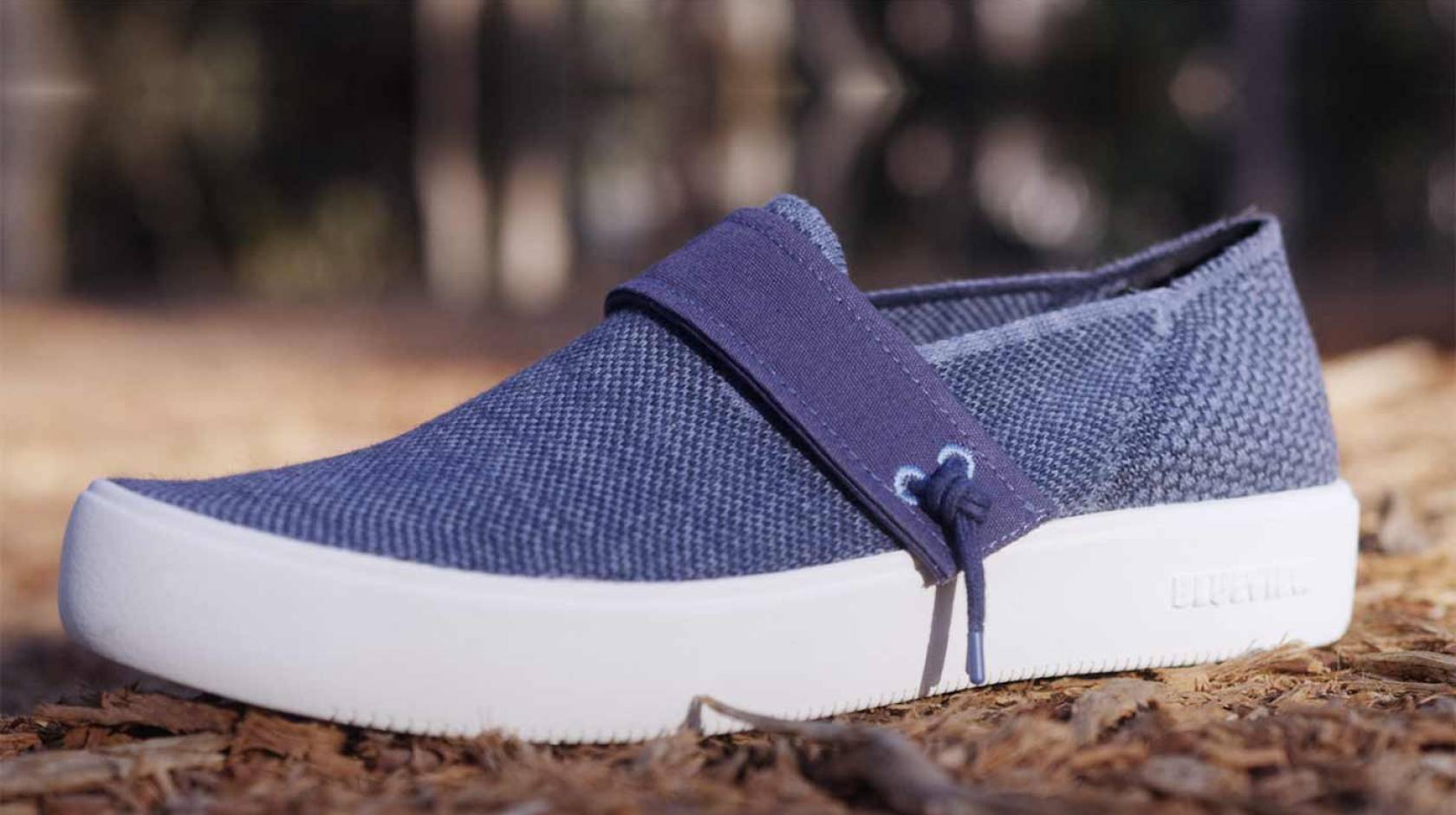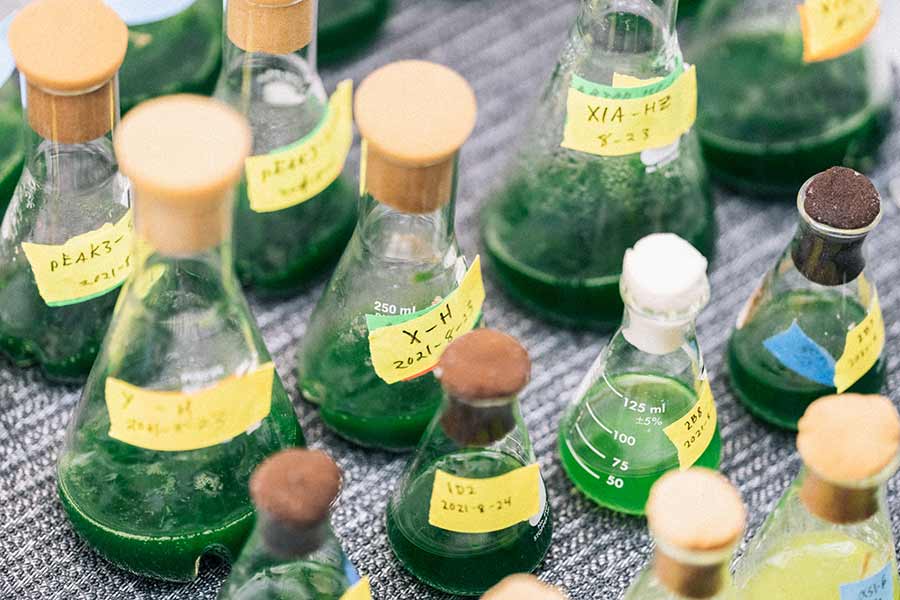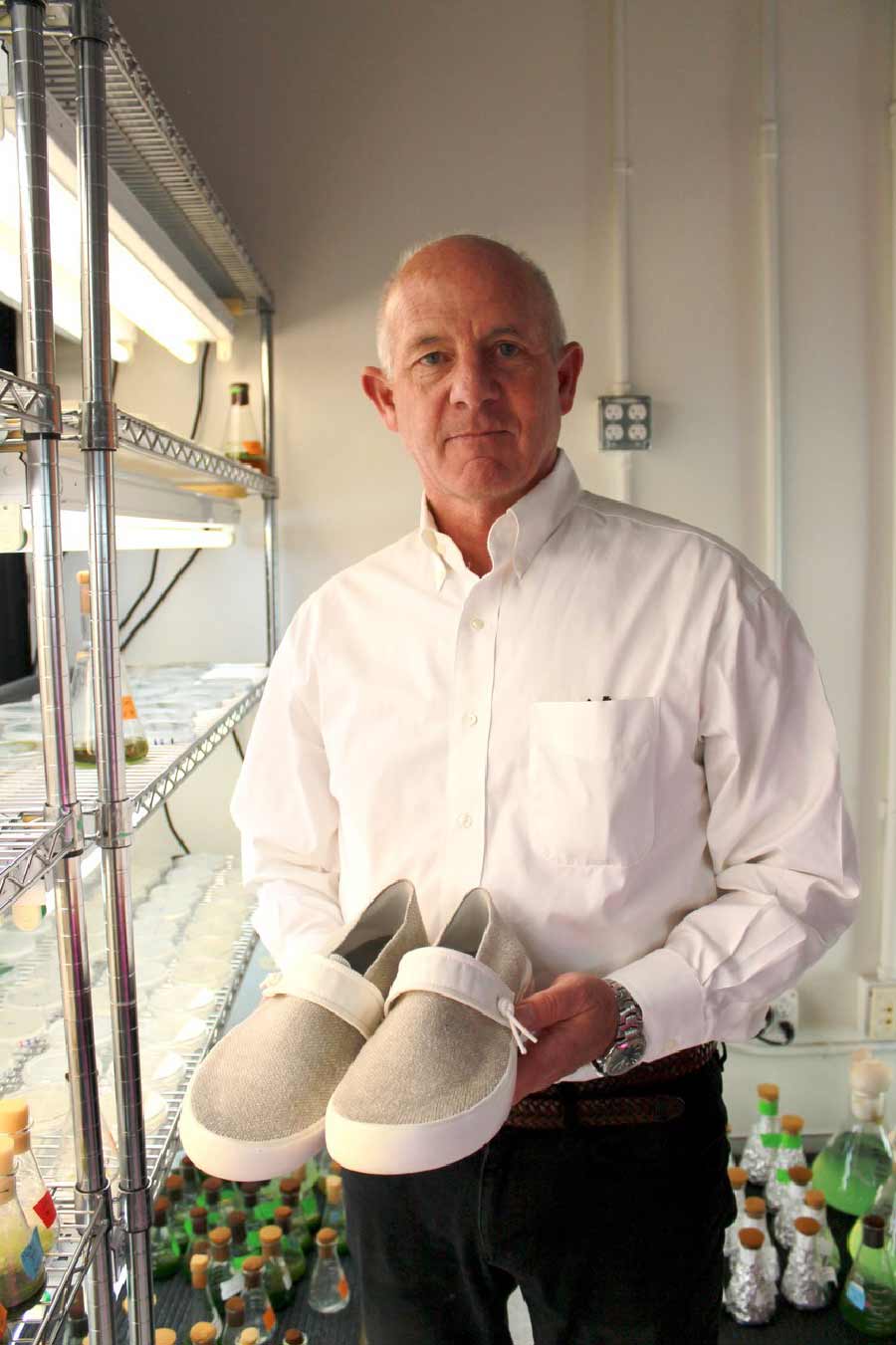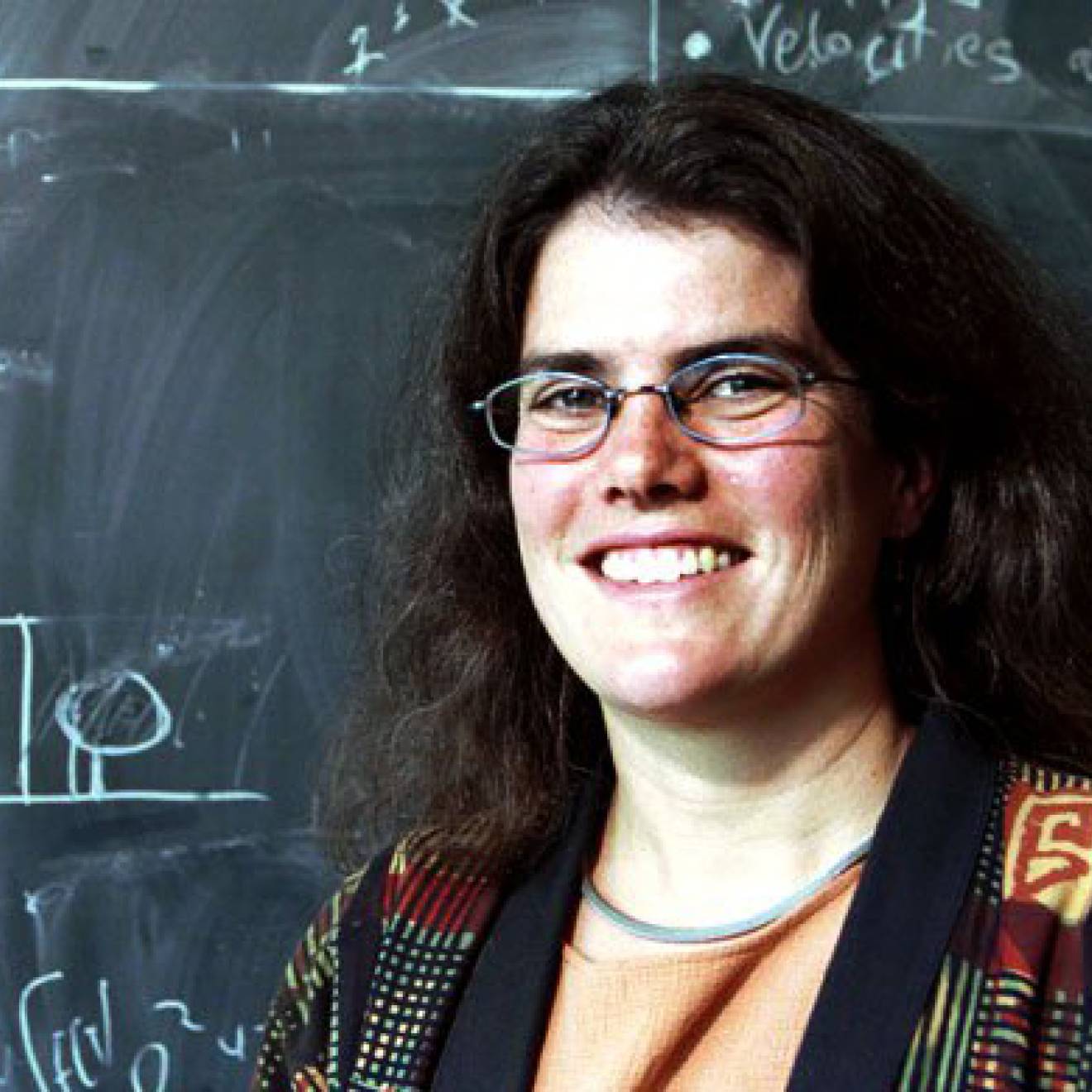Emerson Dameron, UC San Diego

Stephen Mayfield, a molecular biology professor at UC San Diego, now has a stake in the business of footwear alongside partners Michael Burkart and Robert Pomeroy from the Department of Chemistry and Biochemistry. After six years of research and experimentation, these professors are launching the world’s first biodegradable shoe through the company Blueview, of which Mayfield also serves as CEO.
What began as a project to turn algae into fuel shifted into a quest to develop high-performance biodegradable polyurethane foams, which are used as shoe soles. When that material was finally developed, they set out to make a shoe that was also 100 percent biodegradable, which required developing 3D-knit sneaker upper material that was made entirely from plant fibers. When the shoes have outlived their usefulness, the polyurethane bottoms, known as Soleic Foam, along with the knit uppers, will fully biodegrade in compost bins, or even in soil or the ocean. That’s a big improvement over rubber soles that stick around underground for centuries.
The group has also developed algae-based flip-flops using Soleic Foam, which are licensed to Reef through their company Algenesis, of which Blueview is the consumer-facing brand.
We spoke with Mayfield about how he gets his inspiration and the crucial importance of spreading sustainability through the business world.
Q: How has your work in molecular biology been informed by your experience as a surfer?
A: With surfing you are, by the nature of the sport, completely immersed in the ocean, so you cannot miss what people are doing to it, and the planet. Almost every beach in the world is now covered with plastic trash, and the more remote and theoretically pristine that beach should be, the more that plastic trash sticks out. It’s just so sad what we have done to our oceans. Climate change is also visible, but perhaps a bit more difficult to see on a daily basis.
So, seeing this environmental degradation — and it gets worse every year — I have simply decided that nothing could be more important than to work on solutions to these problems. So we decided to tackle one specific problem, ocean plastic trash, and see if we could make something that could positively impact that. We decided to make biodegradable plastics — and we did!
Q: What were some of the epiphanies that led to the idea for Soleic Foam?
A: First, petroleum comes from algae; it’s just fossil algae oil, and plastics come from petroleum. So why not make plastics directly from algae oil?
Second, there are actually biodegradable plastics that exist — not many, but a few — so why not make those biodegradable plastics from algae oil?
Q: What have been the most surprising experiences you've had in working on this product?
A: Our first biodegradable polyurethane materials were of pretty poor quality, but after lots of trial and error, we managed to make them high-performance materials. I think a lot of people assume that bio-based and biodegradable also means low performance, and that’s simply dead wrong!
Q: What's your wildest hope for the success of these shoes?
A: I hope we sell so many of our shoes that all the big fashion brands are forced to start using bio-based and biodegradable materials in their shoes and clothes. Think about the car companies switching to electric cars. They only made the change after Tesla looked like it might put them out of business. If we can make our shoes the top-selling shoes in the world, every single brand will switch to this material — that is my dream.

Q: Do you have any advice for science-minded people who want to get involved with sustainability in the business world?
A: Yes — just do it, in any form, in every way possible. Sustainability has to be the future of every business because if we don’t switch to sustainable products and sustainable practices, the future on this planet is not something any of us want to experience. And every single company out there knows this. Even the giant oil companies are switching as fast as they can.
Q: How has being a part of the UC San Diego community influenced your ideas and attitudes?
A: I came to UC San Diego a dozen years ago to start a collaborative center on algae biotechnology, and from day one every single person I met was open to our collaborative ideas and our entrepreneurial approach, from the Chancellor to first-year students. Everyone here understands the UC San Diego mission to bring scientific solutions to pressing world problems. That’s what makes us, us.


